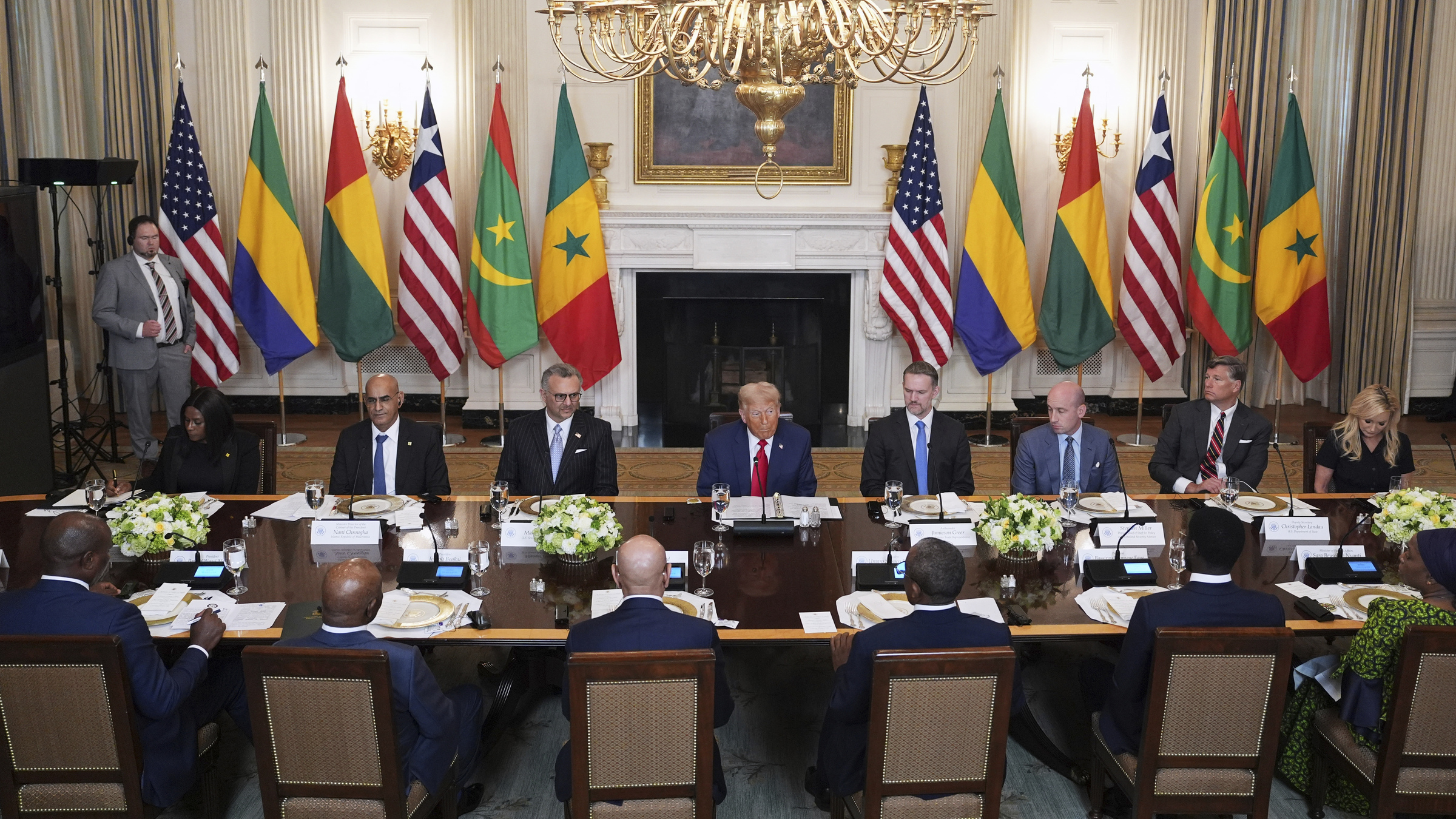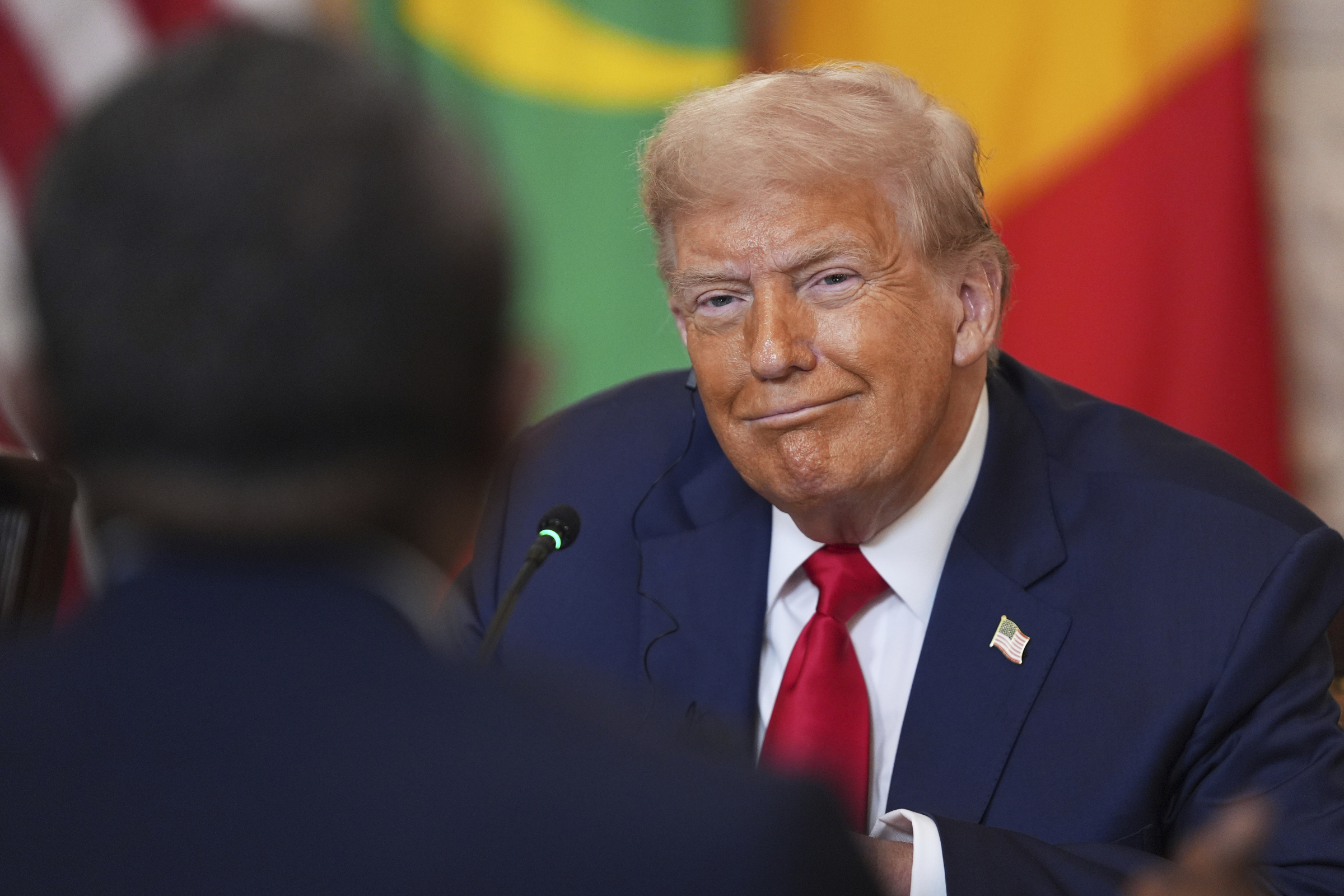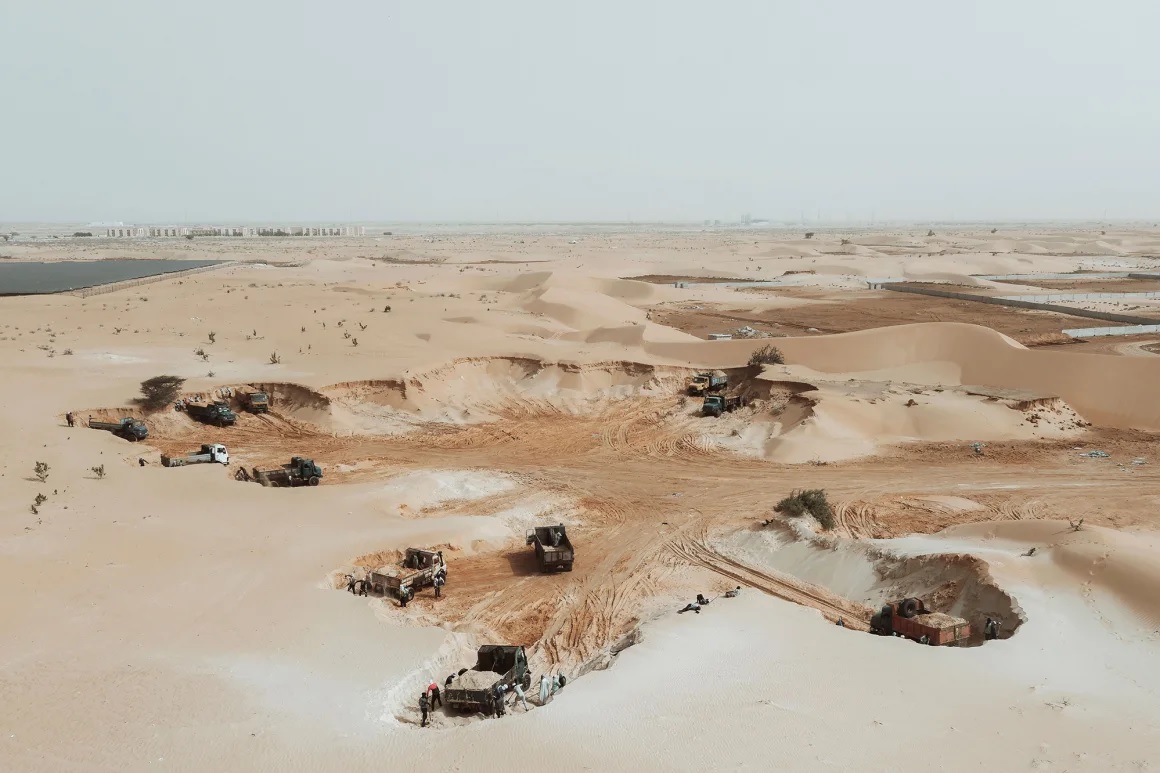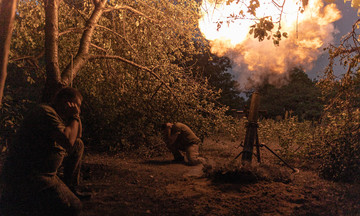President Donald Trump hosted a three-day summit in Washington with the presidents of five African nations: Gabon, Guinea-Bissau, Liberia, Mauritania, and Senegal. The White House described the July 9 meeting as a "tremendous trade opportunity".
The guest list was notable, as these countries are not considered major African economies. Historically, visits from African leaders to the White House have centered on financial and humanitarian aid. This summit, however, focused on US trade policy with the five nations, all currently subject to a 10% tariff on exports imposed by the Trump administration.
During the televised meeting at the White House, the African leaders praised Trump and encouraged stronger economic partnerships with the US. Mauritania's President Mohamed Ould Ghazouani spoke first, commending Trump's role in mediating a peace agreement between the Democratic Republic of Congo and Rwanda. "Just a few months after your return to power, you came to save peace. You quickly resolved a difficult problem in Africa," Ghazouani said.
 |
President Donald Trump (center) hosts five African leaders at the White House on 9/7. Photo: AP |
President Donald Trump (center) hosts five African leaders at the White House on 9/7. Photo: AP
The other 4 African leaders echoed this sentiment, with several endorsing Trump for a Nobel Peace Prize. Senegal's President Bassirou Diomaye Faye even praised Trump's golfing skills and invited him to open a golf course in Senegal.
"Thank you very much. That’s very nice. Thank you. I don’t think I’ve ever been treated quite that way," Trump responded.
The African leaders also highlighted their natural resources, including rare earth minerals, and some extended invitations to US investors. Faye spoke of plans for a "technological city" in Dakar, inviting US investors to participate. President Brice Clotaire Oligui Nguema of Gabon touted his country's "wonderful resources", including rare earth minerals, and welcomed US investment.
Babacar Diagne, former Senegalese ambassador to the US, characterized these invitations as reflective of a recent shift in US policy towards Africa. Since his re-election, Trump has cut US aid to Africa, deeming it wasteful and inconsistent with his "America First" policy. There are also doubts about the renewal of the African Growth and Opportunity Act (AGOA), which grants duty-free access to certain African goods and is set to expire later this year.
Diagne noted a shift away from the Democratic party's focus on poverty reduction and development in Africa through initiatives like AGOA. He described the current administration's stance as "purely commercial", similar to US policy with Ukraine: a quid pro quo approach where agreements on mineral resources secure US support.
 |
President Donald Trump at the White House on 9/7. Photo: AP |
President Donald Trump at the White House on 9/7. Photo: AP
The recent peace agreement between the Democratic Republic of Congo and Rwanda exemplifies how trade diplomacy can grant the US access to Africa's rich mineral resources. Nicaise Mouloumbi, head of a non-governmental organization in Gabon, believes Trump's focus on Africa is driven by these valuable resources and increasing competition with China and Russia.
Mouloumbi pointed out that all the invited African nations possess significant mineral reserves, including gold, oil, manganese, natural gas, timber, and precious stones. Gabon, for instance, holds about 25% of the world's manganese reserves and supplies 22% of China's manganese imports, a mineral crucial for battery and stainless steel production.
Mouloumbi suggests that US interest in Gabon extends beyond its manganese, uranium, and oil reserves to its strategic location along the Gulf of Guinea, potentially as a site for a future US military base. Securing maritime security in the Gulf of Guinea, a vital route for oil and gas tankers, is also a key US concern.
For Mauritania and Senegal, migration is likely a key discussion point. Between 2023 and 2025, at least 20,000 Mauritanian and hundreds of Senegalese youths have attempted to reach the US via Nicaragua. Addressing illegal migration is a central element of Trump's immigration policy.
Liberia, ravaged by a 14-year civil war and the Ebola epidemic, may be considering a US proposal to accept deported immigrants. Severely impacted by US aid cuts, Liberia's fragile healthcare system, 48% funded by the US, desperately needs financial support.
President Trump praises the English proficiency of Liberia's president during a meeting with African leaders at the White House on 9/7. Video: X/Brian Krassenstein
Guinea-Bissau, plagued by coups and coup attempts, is likely seeking the reopening of the US embassy in Bissau, closed since the 1998 mutiny. President Umaro Cissoko Embalo expressed pride in his White House invitation, especially after the US and UN previously labeled Guinea-Bissau a "narco-state", a major drug transit point from Latin America to Europe and North America.
"Guinea-Bissau has emerged from chaos to become a real nation. The US would not invite me if Guinea-Bissau were not a strong nation," Embalo stated before departing for Washington.
 |
A mining site on the outskirts of Nouakachott, Mauritania, in 3/2023. Photo: AFP |
A mining site on the outskirts of Nouakachott, Mauritania, in 3/2023. Photo: AFP
In his first term, Trump praised Africa's "tremendous business potential" and met with several African leaders to "promote prosperity and peace". Now, in his second term, his focus has shifted to securing access to Africa's mineral resources while competing with rivals.
Christopher Afoke Isike, professor of African politics and international relations at the University of Pretoria in South Africa, views the summit as part of Trump's effort to gain influence in the region, as China and Russia also seek to expand their presence and interests in Africa. "On the one hand, Trump wants to secure deals to demonstrate to voters that he is bringing benefits to America. But this also aligns with his focus on promoting US competitiveness against the influence of rivals in the region," he said.
Thuy Lam (BBC, CNN)












